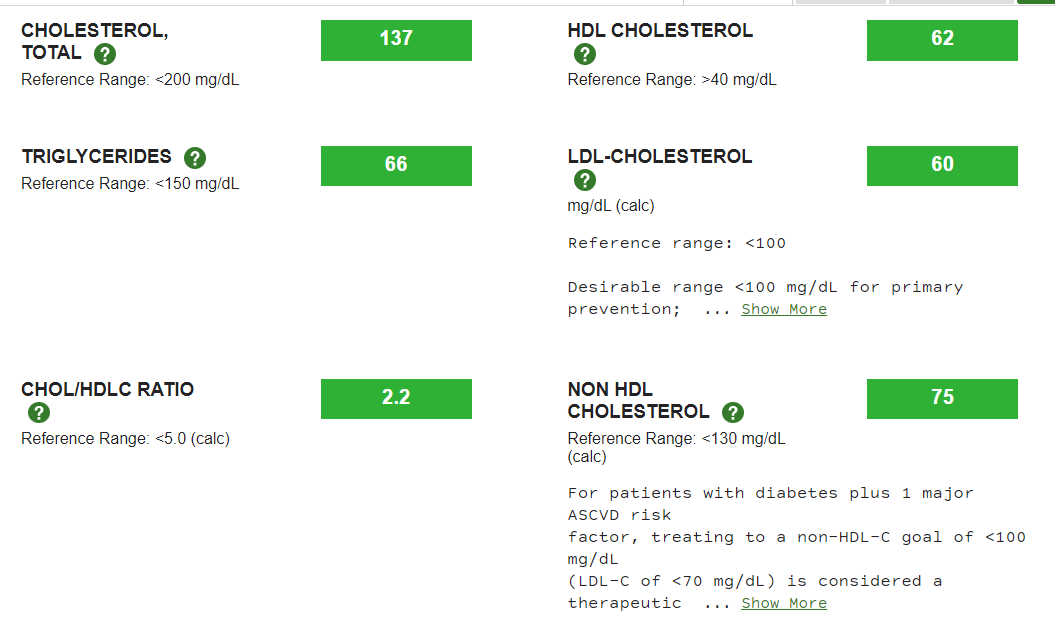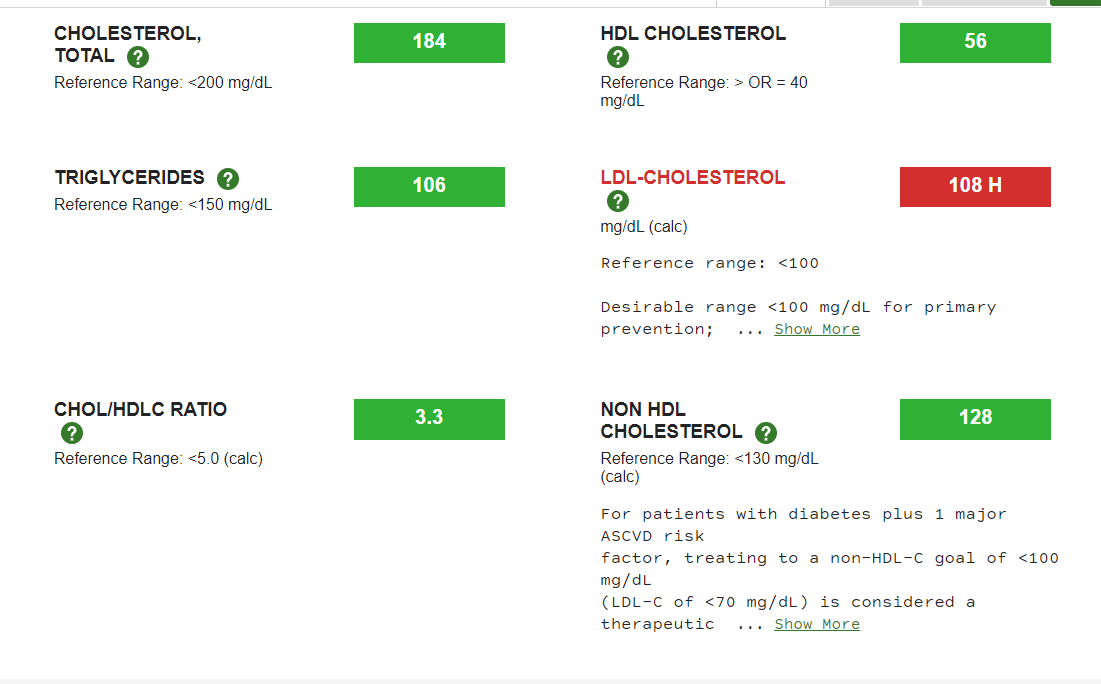Ah. Sorry I didn’t see that post! You are right that there are more and more posts which is good. But it can be hard to stay on top of everything!
@Krister_Kauppi, Thanks for another great interview! Do you happen to know his approximate age? I found his dosing schedule very interesting as it’s quite different from what you typically hear.
I would guess his around his around 55 years. Yes, his dose protocol differs much from what is common in the longevity community. I like that he takes it daily because it forces us in the longevity community to remember that the dose regime we use is still guess work. But I think once weekly and once every other weekly probably will be the dose regimes that most people in the community will use also in the future.
What might be interesting to experiment with would be daily one week on and then one or two weeks off.
Any thoughts about n what you will evaluate on if that dose regime is better than your current ome?
If I don’t see an improvement on my next tests, I will try 1mg daily for 7 days and then 7 days off. I think from my experience that it is high peak doses that do the most damage to my lipid results, especially triglycerides.
My results from before and after rapamycin.
As you can see, my lipid levels are worse on rapamycin. I have not changed my workouts or diet.
Before rapamycin:
After 20 months of rapamycin. (My current dose is 5 mg once weekly.)
As you can see, my lipid levels are worse on rapamycin. I have not changed my workouts or diet.
Pankaj states he is primarily going by certain mouse data and “not going overboard” or not “overdoing.” This is in tandem with use of his product GLYLO to lower blood sugar and AGEs. I am just not sure if the 1mg rapamycin a day for 14 days on/14 days off keeps from going overboard. I am using the discussion for daily dosage @ Trying a daily Rapamycin Dose Change - #32 by MAC as a reference point.
PS - Excellent interview with followup questions.
What your view on Blagosklonny’s thoughts on that it can be good?
“Increase of LDL is therapeutic effect of Rapamycin. It blocks atherosclerosis. LDL increases because fat leaves plaques”
One would hope so, but the study cited is on mice.
But, virtually all cardiologists think that high LDL is harmful. Personally, I am not seeking the lowest LDL possible but I want it to be in the “normal” range
It’s very frustrating to not know what it optimal for us longevity seekers. The biomarkers intervals may be optimized for a reproductive state and not for a long life. But today they are the best we have. I have started to think more and more on this topic and will write about it in a thread. Because I think we need to rethink things.
Blagosklonny points out in this paper about glucose. That we should not blindly look at a specific biomaker. We should also take inconsideration in what state that biomarker occur. Like in main case of that paper it’s about higher glucose levels. If they occur in a high chronic mTOR activation state then it’s bad but is it bad if it happens in a mTOR inhibited state like when taking Rapamycin, practicing CR, fasting or keto. He thinks it may be good instead.
He touches also little bit on lipids on that article. Interesting thoughts.
I’m pretty sure we do know, it’s just that people aren’t comfortable with knowing, in my opinion. I don’t know why, since it can be decreased so safely.
Those mice studies can’t be trusted. Observational data show that people who take mTOR inhibitors for transplants are associated to have higher rates of heart disease than those who don’t for the same condition.
Great feedback on the organ transplant patients data point ![]() Do know of any pubmed link to a study showing this?
Do know of any pubmed link to a study showing this?
I have posted about this in the cardiovascular thread, you can find it here:
Rapamycin and risk of cardiovascular disease - #1765 by AnUser
The posts I made above and below that post discusses animal studies too. The link between apoB/LDL and lifespan is very interesting, further down or above the post, I don’t remember.
There is the quantity of LDL but also the quality. A simple lipid panel does not even measure the LDL it’s just estimated from the HDL, TG and TC so taking decisions on LDL only is not optimal.
If you want to really know your lipids and insulin resistance you need to take an NMR blood test.
Here is the one I use ($69): NMR LipoProfile + IR Markers + Graph
If you want to see how the results look I’ve posted them here How to interpret Very high LDL and TC on rapa but with conflicted risk assessment?
Basically they say the CVD risk based on the LDL quantity would be high but it’s reclassified as low because it’s size (pattern A).
That said that’s a little bit confusing as I could not find a lot of stuff on that but at least the result of the test is low CVD risk, which is the point.
there is evidence to suggest that mTOR inhibitors might be cardioprotective.
In heart transplant recipients, mTOR inhibitors have consistently demonstrated beneficial effects on cardiac allograft vasculopathy (CAV).
…investigated cardiovascular outcomes in sirolimus versus control. There were no differences in myocardial infarction, abdominal aortic aneurysm, cerebrovascular accident, and congestive heart failure incidences between the two groups. However, the sirolimus cohort was older, with higher proportions of pre-transplantation hypertension and diabetes and post-transplantation hypertension compared to non-sirolimus controls, which might suggest that sirolimus was cardioprotective despite the higher incidence of hypercholesterolemia.
Nevertheless, we cannot establish a causal relationship between mTOR inhibitors and worse cardiovascular outcomes compared to CNIs with our large database analysis.
I also found the interview interesting. But the point regarding CR is a misunderstanding many prominent people repeat.
The reason its sometimes negative is simply because for those animals the 30-50% was too much for them to handle. If you took those animals down to 15-20% their lifespan would likely increase just the same. CR is not some unstable boomstick.
Not to mention theres many studies where the lifespan is pretty much extended across the board.
“Optimal” could be for different conditions or situations. Going back to your Pankaj interview, his 14 day 1mg rapmycin / 14 days off seems primarily to be preventive. A long term lifestyle solution. And he is directly confronting his tendency to over eat with fasting and high blood sugar with his supplement. He also stated that someone with different medical condition might need another strategy than his. So parsing out from your interview, he seems to have a well thought out strategy (optimal) for a healthy 50ish male who likes to eat. I also think he is not entirely forthcoming on his strategy. He has access to scientists in his field who can directly guide his thinking. That is not a criticism about not being forthright. I think he has avenues of thinking that are too early and iterative to state in an interview.
It would be a failure to grasp the hierarchy of evidence to use a study of atherosclerosis in mice (which don’t even naturally get atherosclerosis) to draw a conclusion directly opposite to known facts about atherosclerosis in humans. But the point is moot, because rapa doesn’t raise LDL in these mice, contrary to what Blag is here saying:
Importantly, total serum cholesterol level in fat-fed mice was not affected by systemic treatment with rapamycin at 1 and 4 mg/kg (RAPA1 and RAPA4, respectively, p>0.05 vs. control fat-fed mice) (Fig. 1A). Likewise, the amount of cholesterol associated with discrete lipoprotein fractions of fat-fed mice was unchanged in rapamycin-treated versus untreated mice (Fig. 1B). Thus, rapamycin does not affect lipid profile in fat-fed apoE-null mice.
And just for reference if anyone wants to see what a young Dr. Kaeberlein looked like:

That pic makes Matt’s personal testimony (from one of his podcasts) of being a bit , wild, rogue, and unfocused as a youth… much more believable. Hahaha.
I think he needs to go back to a scruffy beard look.

